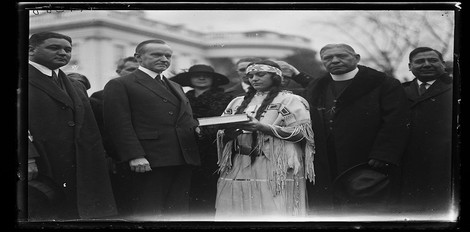Your podcast discovery platform
Curious minds select the most fascinating podcasts from around the world. Discover hand-piqd audio recommendations on your favorite topics.

piqer for: Climate and Environment
Pamela works as a Press & Communications Manager for an international NGO (IWGIA) defending indigenous peoples' rights. She holds an Erasmus Mundus MA in Journalism, Media & Globalisation from Hamburg and Aarhus University and an MA in Political Science from the University of Buenos Aires. She will be putting the eye on international media coverage of indigenous communities and their demands.
What History Says About Indigenous Land Policies In The US
When reporting on indigenous peoples' rights, mainstream media usually lacks a solid fact-based historical perspective. This article on The Conversation brings a short and to the point summary of how American politicians have historically dealt with indigenous land rights.
It firmly sustains the claim that
“even when American presidents have been sympathetic towards the plight of the American Indian, their actions have often proved contradictory”.
Throughout the piece researcher Edward Mair makes a clear point: the United States have never had a clear, fair and consistent policy to address indigenous peoples' rights.
Mair already detects these controversies in the thoughts and actions of one of America’s founders, Thomas Jefferson. Even though in 1786 Jefferson stated that “it may be taken for a certainty that not a foot of land will be taken from the Indians without their consent”, later on, he was all for evictions in Georgia in 1803.
Indigenous land rights have definitely been a constant unresolved dilemma in the United States. That is why we should not be surprised at the recent Sioux Tribe's victory over the Dakota Pipeline. Indigenous peoples in America have consistently been claiming their land rights against the expansion of industries and development.
All along they have fought the same struggle.
From the 1800s to Nixon's administration, no remedy and restitution agenda has been in place. The rules of the game may have balanced the equation when in 1924, Native Americans were granted US citizenship. This was only the first step to achieve a political voice.
The political effervescence of the 70s brought some good news for the Taos Pueblo, who recovered their sacred lands. Also, in 1975, the Indian Self-Determination and Self-Organization Act was passed but did not make it into a law.
All in all, this read is a good checklist to get the facts straight, especially to paint the bigger picture and fact check Donald Trump's speeches on indigenous issues.
